A national conference organised by MCAST has marked a significant milestone for the future of skilled trades in Malta. Held on 12th June at the MCAST Main Campus in Paola, the Revitalising Trades through Innovation and Skills event brought together government officials, educators, industry experts, and trade union representatives to explore how the trades sector can adapt and thrive in a changing economy.
The conference was officially opened by the Minister for Education, Sport, Youth, Research and Innovation, Hon. Clifton Grima, who described the revitalisation of trades as a priority for Malta’s development. The Minister also announced progress on the newly established Institute for the Trades within MCAST, which will offer structured, accessible entry routes into traditional and emerging trades as of October 2025.
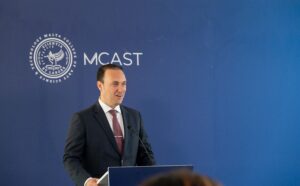
MCAST Principal and CEO, Mr Stephen Vella, noted that Malta must continue to invest in vocational pathways that support both the preservation of heritage skills and the adoption of modern methods. “This is about providing opportunities and ensuring that we develop trades programmes that are future-oriented and about emphasising that trades are an essential skill open to all,” he said.
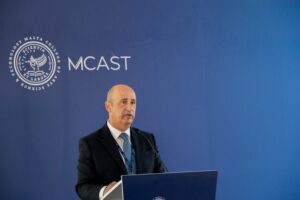
Director Amanda Cassar presented the Institute for the Trades’ first suite of training programmes. These MQF Level 1 and Level 2 certificates offer hands-on education in areas such as metalwork, textile techniques, tile-making, stonework and training in trowel trades as follows:
- Certificate in Metalworks
- Certificate in Precious Metalwork
- Certificate in Textile Techniques
- Certificate in Tile-Making and Stonework
- Certificate in Trowel Trades
Each course is designed to blend theory with practical skills through workshops, placements, and real-world industry experience. A key feature of these new courses is the integration of micro-credentials, which allow students to build recognised skills in smaller, focused modules. This flexible, step-by-step approach is widely regarded as the way forward in vocational education and lifelong learning, providing learners with the opportunity to enter the workforce sooner and upskill as needed over time.
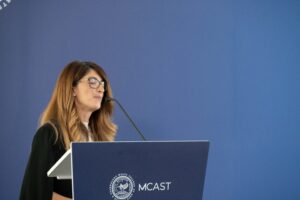
In his keynote speech, Marco Bonnici, President of MUT, said, “Today, we face the challenge of truly recognising the value of trades and removing the stigma that has long overshadowed them. We must rediscover and reaffirm the essential role these skills play in our society and economy.”
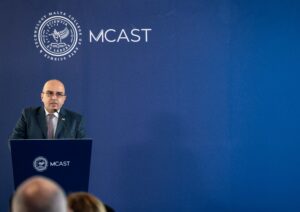
The conference featured several panel discussions on key themes, including sustainability in the trades, the role of micro-credentials in lifelong learning, and how Malta can future-proof the skilled workforce. Representatives from the National Skills Council, the Malta Chamber, Jobsplus, and trade unions, including MUT, UHM, GWU and UPE, contributed to the discussions.
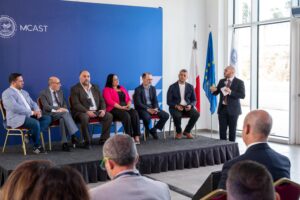
In closing remarks, Deputy Principal Dr Mario Cardona spoke of the need to reframe how society values vocational careers. “We are not just filling gaps in the workforce,” he said, “we are shaping people with purpose, skill, and dignity.”
This conference is being organised as part of the series of events Encounter: MCAST meets Industry, supported by the Ministry of Education, Sport, Youth, Research and Innovation and aimed at ensuring that the MCAST course offer reflects industry needs.
Applications for MCAST courses, including those offered by the Institute for the Trades, will open on 14 July 2025. On Friday 20 June, students and their families will have the opportunity to visit MCAST facilities in Paola and speak to staff and students about courses opportunities at the Open Day from 5pm to 9pm. On Sunday 22 June, students interested in Creative Arts courses can visit the Mosta Campus.
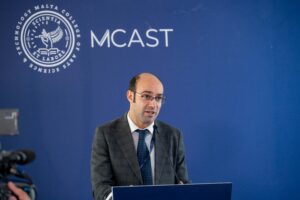
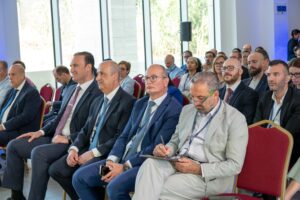
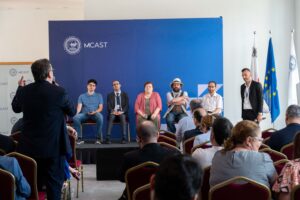
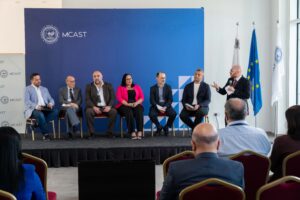
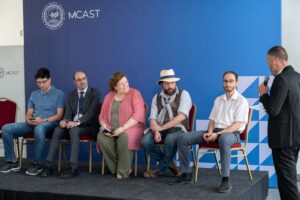
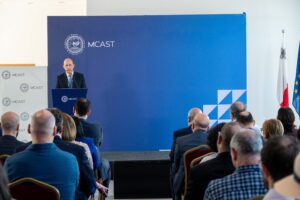
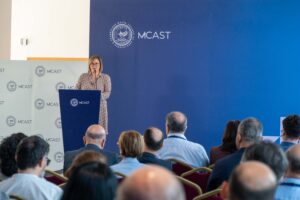







 MCAST Main Campus
MCAST Main Campus  +356 2398 7100
+356 2398 7100
 information@mcast.edu.mt
information@mcast.edu.mt